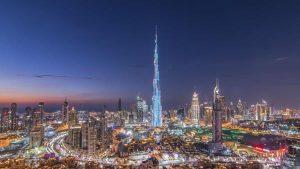After three consecutive years of substantial growth, Dubai’s Real Estate Market on a Hot Streak. Dubai’s home prices have continued to rise in the first half of 2024. Knight Frank’s July 8 report highlights a record of 431 homes priced above US$10 million sold in 2023 and an additional 190 sales in the first half of 2024. In the higher price bracket, homes above US$25 million saw a 25% increase, totaling 21 sales in 1H2024, as reported by Will McKintosh, regional partner and head of residential, Middle East and North Africa.
Transaction activity is accelerating, especially at the luxury end of the market. Knight Frank reports that the total value of luxury homes sold in 1Q2024 reached US$1.73 billion, a 2.2% year-over-year increase.
Read this also: Emerging Affordable Housing Trends
Prime Residential Market Shortage in Dubai’s Real Estate Market on a Hot Streak
Prime residential markets in Dubai, such as Emirates Hills, Jumeirah Bay Island, Jumeirah Islands, and The Palm Jumeirah, have seen a significant reduction in available properties. According to Knight Frank, the number of homes available for sale in these areas decreased by 47% over the past 12 months to 2,851 properties. Andrew Cummings, Savills’ head of residential sales, Middle East, notes the high demand for waterfront residences, particularly on The Palm Jumeirah.

Read this also: The Impact of Expo 2020 on Dubai’s Real Estate Market
Influx of Millionaires Boosting Demand in Dubai’s Real Estate Market on a Hot Streak
An influx of millionaires drives the scarcity of new housing stock. Over 4,500 millionaires moved to Dubai last year, with projections suggesting up to 6,700 will settle in the Emirates by the end of 2024, according to the Henley Private Wealth Migration Report 2024. Dubai continues to attract high-net-worth individuals, securing its position as a leading wealth magnet.
Dubai’s population of millionaires has surged by 78% over the past decade, reaching 72,500 individuals with at least US$1 million in liquid assets, as per Henley & Partners’ World’s Wealthiest Cities Report 2024. Additionally, Dubai is home to 212 centa-millionaires and at least 15 billionaires.
Quality of Life Enhances Appeal in Dubai’s Real Estate Market on a Hot Streak
Dubai’s appeal is further strengthened by its focus on quality of life. Andrew Cummings highlights Dubai’s significant investment in infrastructure, including schools and hospitals, designed to attract long-term residents. The city’s visa regimes, such as the golden visa and digital nomad visa, also contribute to the thriving real estate market.
Top Foreign Buyers and Market Dynamics in Dubai’s Real Estate Market on a Hot Streak
Chinese buyers were among the top foreign nationals purchasing homes in Dubai last year. Savills’ data shows that Chinese nationals accounted for 13% of all property transactions in 1H2023, up from 8% in the same period in 2022. Emaar Properties, Dubai’s largest developer, reported a rise in Chinese investment, comprising 7% of total sales in 1H2023.
Resilient Market and Steady Growth in Dubai’s Real Estate Market on a Hot Streak
Dubai’s residential real estate market demonstrated resilience in 1Q2024, with a 35% quarter-over-quarter increase in transaction volume, reaching an all-time high of 35,100 units. About 63% of these transactions were for projects under construction.
Despite rapid growth, Dubai’s luxury residential market remains one of the most affordable globally. Knight Frank notes that US$1 million can secure approximately 980 sq ft of prime residential space in Dubai, compared to much smaller areas in cities like New York, London, and Singapore.
Rental rates also saw an average increase of 7% across the city in 1Q2024, with apartment rents up by 8% and villa rents by 6%. The Dubai Land Department reported 159,941 rental registrations in 1Q2024, reflecting a 5.88% increase from the previous year.
Anticipated Future Growth in Dubai’s Real Estate Market on a Hot Streak
Dubai’s population grew by 100,240 last year, reaching 3.65 million by December. Despite the influx, developers completed only 6,526 new residential units in 1Q2024. CBRE projects that 46,086 new units will be delivered by the end of the year.
Savills’ Cummings believes that Dubai is nearing its previous peak in residential prices and expects steadier growth of 4% to 5.5% in 2024. The UAE’s removal from the Financial Action Task Force (FATF) grey list in February is also seen as a positive development for the market.
Dubai’s unique growth trajectory is set to continue with massive infrastructure projects, including a new US$35 billion passenger terminal at Al Maktoum International Airport and the US$11 billion Etihad Rail project. The upcoming Palm Jebel Ali, twice the size of Palm Jumeirah, will further enhance Dubai’s residential offerings.





